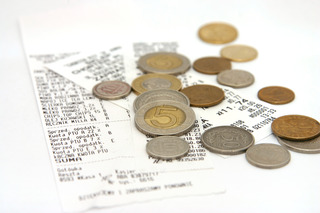For several years the position of Polish exporters on the markets of the former Commonwealth of Independent States has been clearly weakening
Published:
5 May 2003 y., Monday
In order to spur on trade, presentations of Polish exporters are gaining popularity. One such presentation is the Polish National Exhibition in St. Petersburg.
Geographic proximity, relatively small competition from local manufacturers who are not capable of satisfying the growing demand for modern products and, contrary to common belief, the increasingly wealthy and demanding customer, are the advantages of the "eastern market." Why then does trade with the countries of the Commonwealth of Independent States (CIS) constitute as little as 7.1 percent of the global value of Polish export?
The position of Polish companies is weakened by competition from the Western businesses that are perfectly aware of the perspectives which an active and strategically planned entry into Eastern markets can accomplish. Entrepreneurs from Germany, France and the United States, supported by the appropriate funds, first promote and then successfully sell their products in Russia and Ukraine or make direct investments there.
The decrease in the amount of Polish agriculture and food products exported to Eastern markets has stemmed from the fact that big international concerns such as Nestlé, Danone or Unilever directly entered this strategic area. However, the issue of Western competition is only a part of the answer to this question and the possibility of development for Polish exporters on the markets in the former Soviet Union.
One of the most serious difficulties Polish companies encounter is a considerable risk connected with signing commercial contacts with partners from the East who frequently appear to be insolvent and do not honor their contracts. According to Robert Stawski from the Promotion Chamber of the Polish Chamber of Commerce, businesspeople from Russia frequently do not understand the term "advance payment" and sometimes want to pay for the products only after they sell them. For obvious reasons, these terms are hard to accept for Polish manufacturers, which are mostly small and medium-sized companies. The state does not guarantee any protection for companies against situations in which partners from Russia, Belarus or Ukraine do not fulfill the terms of a commercial contract.
Šaltinis:
warsawvoice.pl
Copying, publishing, announcing any information from the News.lt portal without written permission of News.lt editorial office is prohibited.
The most popular articles
 European cities may still be feeling the pinch of the global recession.
more »
European cities may still be feeling the pinch of the global recession.
more »
 The EBRD Board of Directors has approved a $50 million convertible loan to Petrolinvest to finance the completion of exploration works at the company’s main oilfields.
more »
The EBRD Board of Directors has approved a $50 million convertible loan to Petrolinvest to finance the completion of exploration works at the company’s main oilfields.
more »
 The European Commission welcomes the adoption today at the United Nations in Geneva of the first international regulation on safety of both fully electric and hybrid cars.
more »
The European Commission welcomes the adoption today at the United Nations in Geneva of the first international regulation on safety of both fully electric and hybrid cars.
more »
 Bloomberg has today announced that Lithuania had the outlook on its credit rating raised by Fitch Ratings after the Government implemented an austerity program to curb the budget deficit.
more »
Bloomberg has today announced that Lithuania had the outlook on its credit rating raised by Fitch Ratings after the Government implemented an austerity program to curb the budget deficit.
more »
 In January 2010, compared with December 2009, the highest increase in retail trade in the EU-27 Member States was observed in Lithuania.
more »
In January 2010, compared with December 2009, the highest increase in retail trade in the EU-27 Member States was observed in Lithuania.
more »
 Three thousand former car, refrigerator and construction workers in Germany and Lithuania will get €7.6 million in EU globalisation adjustment fund aid for training, self-employment and job guidance after Parliament gave the green light on Tuesday.
more »
Three thousand former car, refrigerator and construction workers in Germany and Lithuania will get €7.6 million in EU globalisation adjustment fund aid for training, self-employment and job guidance after Parliament gave the green light on Tuesday.
more »
 Some 80% of Europeans continue to travel for their holidays according to a new Eurobarometer survey on ‘The attitudes of Europeans towards tourism 2010’.
more »
Some 80% of Europeans continue to travel for their holidays according to a new Eurobarometer survey on ‘The attitudes of Europeans towards tourism 2010’.
more »
 The EU's internal market will be under scrutiny Tuesday when a series of reports will be debated by MEPs in Strasbourg.
more »
The EU's internal market will be under scrutiny Tuesday when a series of reports will be debated by MEPs in Strasbourg.
more »
 EU Employment and Social Affairs Ministers today agreed on a new facility to provide loans to people who have lost their jobs and want to start or further develop their own small business.
more »
EU Employment and Social Affairs Ministers today agreed on a new facility to provide loans to people who have lost their jobs and want to start or further develop their own small business.
more »
 Over €7.6 million in financial aid for training and self-employment could be available to former workers in German and Lithuanian if MEPs back the measures Tuesday.
more »
Over €7.6 million in financial aid for training and self-employment could be available to former workers in German and Lithuanian if MEPs back the measures Tuesday.
more »